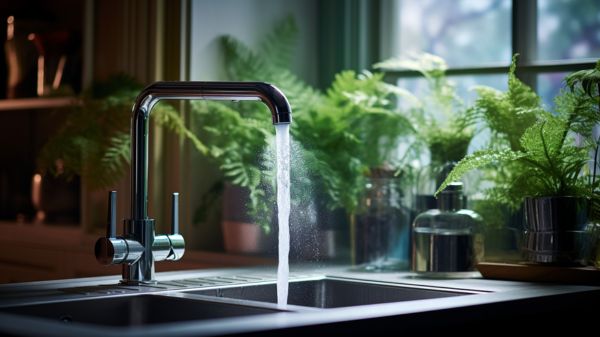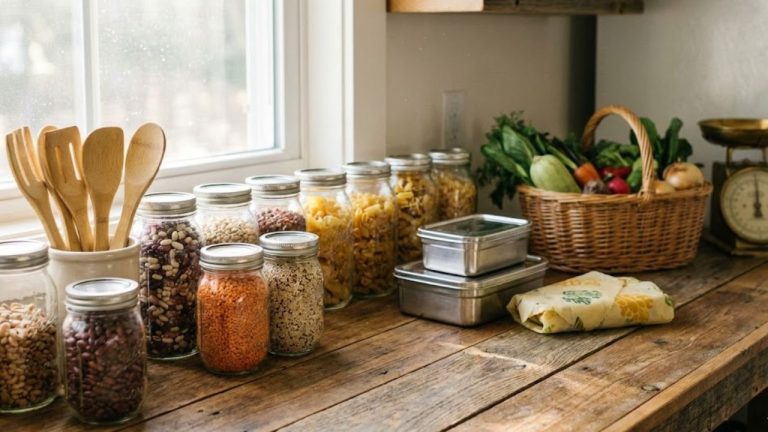As we journey through the ever-changing landscape of our environment, we must strive to protect and cherish the precious resource that flows through our homes: water.
In our quest for belonging to a sustainable world, household water conservation emerges as a beacon of hope. By joining forces and actively reducing our water usage, we can reap a multitude of benefits.
From lower utility bills to preserving natural resources, from reducing water pollution to mitigating water scarcity, the power of our collective actions knows no bounds.
Together, we can make a difference.
Lower Utility Bills
Lowering utility bills can be achieved by implementing effective household water conservation practices. By reducing the amount of water used in daily activities such as showering, washing dishes, and doing laundry, significant financial savings can be realized.
Water conservation not only helps to conserve a precious resource but also has a positive environmental impact. For instance, when we reduce our water usage, we decrease the energy required to treat and transport water, which in turn reduces greenhouse gas emissions and the overall carbon footprint.
Additionally, by conserving water, we help to preserve aquatic ecosystems and maintain a balance in the natural environment. By adopting simple yet impactful water-saving habits, we can contribute to a sustainable future while enjoying the benefits of lower utility bills.
Preserve Natural Resources
How can we effectively preserve natural resources through household water conservation?
By adopting eco-friendly practices and implementing water conservation techniques, we can make a significant impact on preserving our precious resources. Here are three ways in which we can contribute to this cause:
Install low-flow fixtures: By installing low-flow faucets, showerheads, and toilets, we can reduce water usage without sacrificing functionality. These fixtures use less water without compromising water pressure or performance.
Collect and reuse rainwater: By installing rain barrels or underground storage tanks, we can collect rainwater and use it for various household purposes such as watering plants or cleaning. This reduces the need to use treated water for non-potable activities.
Fix leaks promptly: Regularly check for and repair any leaks in faucets, pipes, or toilets. A small leak may seem insignificant, but it can waste a significant amount of water over time.
Reduce Water Pollution
To reduce water pollution, we can actively prevent contaminants from entering our water sources. Preventing contamination is crucial to protecting ecosystems and ensuring the availability of clean water for generations to come.
Contaminants such as chemicals, fertilizers, and pollutants from industries can have detrimental effects on aquatic life and human health. By implementing proper waste management practices, we can reduce the risk of contamination. This includes disposing of hazardous materials responsibly, using eco-friendly cleaning products, and maintaining septic systems.
Additionally, adopting sustainable agricultural practices, such as reducing pesticide and fertilizer use, can help prevent runoff into water sources.
It’s essential for all individuals to understand the impact of their actions on water quality and take proactive measures to prevent contamination and protect our precious ecosystems.
Mitigate Water Scarcity
One way we can address the issue of water scarcity is by conserving water in our households. By implementing sustainable farming practices, we can reduce the amount of water used in agricultural activities. This includes using efficient irrigation systems, such as drip irrigation, and adopting crop rotation techniques that optimize water usage.
Additionally, community initiatives can play a crucial role in mitigating water scarcity. By organizing awareness campaigns and educational programs, communities can promote water conservation practices and encourage responsible water usage.
Furthermore, community-led efforts can focus on implementing rainwater harvesting systems and greywater recycling programs to maximize water resources. These initiatives not only help alleviate water scarcity but also foster a sense of belonging and collective responsibility towards our environment.
Promote Sustainable Living
Promoting sustainable living enhances our collective efforts in conserving household water. By adopting sustainable practices and embracing an eco-friendly lifestyle, we can contribute to the preservation of our planet’s most precious resource.
Sustainable living encompasses various actions that minimize our ecological footprint and ensure the long-term well-being of our environment. This includes reducing water consumption through efficient fixtures and appliances, practicing rainwater harvesting, and using greywater systems to recycle water for non-potable purposes.
Additionally, sustainable living encourages the use of organic and locally sourced products, reducing the pollution caused by the production and transportation of goods. By making conscious choices in our daily lives, we can’t only save water but also create a more sustainable future for ourselves and future generations.
Together, we can make a significant impact and foster a sense of belonging within a global community dedicated to protecting our planet.
Conclusion
In conclusion, household water conservation is a highly beneficial practice that not only helps lower utility bills but also preserves natural resources, reduces water pollution, mitigates water scarcity, and promotes sustainable living.
One alarming statistic is that an average American household uses around 300 gallons of water per day, whereas only 1% of the Earth’s freshwater is readily accessible.
This fact highlights the urgent need for us to actively participate in water conservation efforts to secure a sustainable future for ourselves and generations to come.




